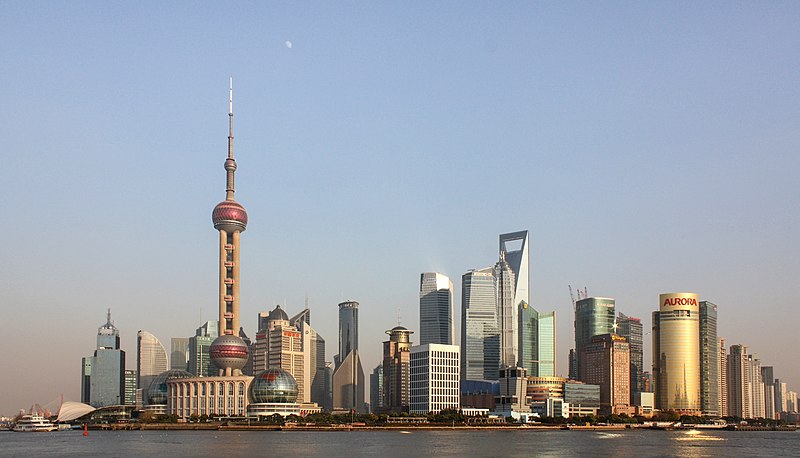
Saturday, January 7, 2012
Another reminder to readers:
This is my 131 post and only the last handful of posts I made are shown depending on what you are using to view this. I know I touch on many topics and some are quite random while others seem random but are indirectly connected to the other topics (in other words, more relevant than they appear). If however, one is looking for the posts that deal directly one particular topic such as "Autism" then I want to point out that somewhere on the page should be a place where you can search all the articles in this blog at once (using keywords). I'm hoping that in time I will figure out more ways to make this more user-friendly to read and navigate.
Autism Clusters?
There are more studies coming out trying to find geographic patterns in distribution of Autism. The problem with comparing places is that not every place has a uniform way of diagnosing developmental disabilities which could help partially explain why affluent areas with high education levels tend to have higher rates of Autism. One has to read such articles with caution since there is a lot of room for "spin" and subtle propaganda with statistics (which can be easily manipulated). It is good to look at stuff like this however and see what patterns we can find- as long as one doesn't jump to conclusions about anything. http://www.sciencedaily.com/releases/2010/01/100105112117.htm
Autism rates by country with map: http://leekduck.deviantart.com/art/Autism-rates-by-nation-map-180352813
Autism rates by state: http://www.latimes.com/la-me-autism-us-map-ph,0,1370309.photo
One known Autism cluster is the Silicon Valley centered in San Jose, CA:
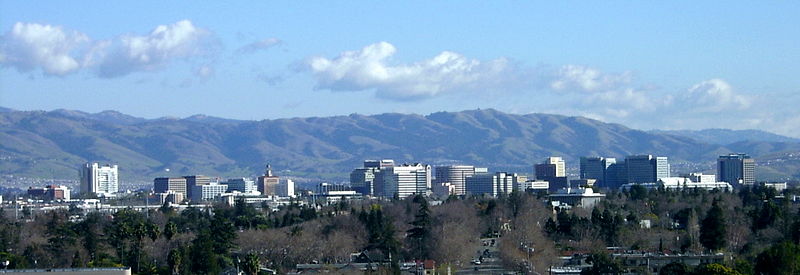
San Jose skyline in 2006: Wikimedia Commons
Autism rates by country with map: http://leekduck.deviantart.com/art/Autism-rates-by-nation-map-180352813
Autism rates by state: http://www.latimes.com/la-me-autism-us-map-ph,0,1370309.photo
One known Autism cluster is the Silicon Valley centered in San Jose, CA:

San Jose skyline in 2006: Wikimedia Commons
16 years ago tomorrow:
Tonight and tomorrow mark 16 years since the Blizzard of 1996 (January 8). Today it is unseasonably warm and I'm not complaining, as just over a decade-and-a-half ago my Father and I were cleaning up about 21" of snow. If we lived further south or east we would have been shoveling a lot more: http://www.weatherbook.com/blizzard1996.html
Ever hear of Pudong?
What did Jesus and Mary really look like?
Unfortunately at the time when Jesus was living on Earth there were no cameras or video recorders. There are however many paintings and statues made of Jesus, the Blessed Mother (Mary), even God the Father who never was seen on Earth. Growing up in Catholic school we were taught that God created us in His own image and likeness. To most people that all sounds good and is one of the easier doctrines to accept. The funny thing about human nature is that we tend to think the opposite- in other words we create God in our own image and likeness. I'm not saying its a major crime but just interesting how people think. Ethnocentrism tends to play a major part in how we view the Higher Powers. While we know Jesus lived in the Middle East and we can use some generalizations to guess what he looked like it was always a diverse part of the world and no one really knows for sure. He is likely to have had long hair, that seems reasonable, and he is likely to have had dark hair and eyes (as he was Jewish). Yet on many Western images both Jesus and his Mother tend to have light hair and blue eyes. I have also heard stories of alleged apparitions of the Virgin Mary where she appeared to people around the world with physical features of that culture. I won't argue... you never know. I also notice in Religious literature people tend to give God a personality and sometimes cultural traits of their own culture, perhaps without realizing it. Many times people tend to see God as having their temperament and other human ego-based qualities. I don't doubt that God has feelings but like to give Him credit for maturity and I don't think he has an Ego the way fallen human beings do. One of my favorite things is when I see statues or images of the Virgin Mary, especially cheaply made ones where she has make-up and lipstick (and is blonde of course). Now I know they had eye shadow in ancient times made from ashes and other things, I'm not sure about lipstick, but I highly doubt she would have worn such stuff in a modern way.
Mel Gibson made the Movie "The Passion" a few years back and while I have mixed feelings about the movie I will have to say this: Mel Gibson is a genius- even though I don't always agree with his views (and no one can seem to figure him out anyway). He was thoughtful enough to portray things as realistic as possible, he even used the vernacular Aramaic language commonly used at the time. Other things did make me shake my head: Jesus was given unusually "macho" mannerisms, and it's possible he had them- many images of Jesus are rather effeminate for a first century carpenter. But I noticed he made all the bad guys rather androgynous. Also at the beginning of the movie he was shown being almost flirtatious with some woman. Nothing really bad but I can't help but to wonder what point he was trying to prove.
One of the first images of Jesus and Mary I can remember was in my Parents' bedroom right over their bed. It was the paintings of Warner Sallman, Swedish Lutheran artist. (He was an American of Swedish/Finnish/Nordic ancestry.) The picture of Jesus was sepia-tone but in both paintings both Jesus and especially Mary had rather Nordic features. As a kid I found the picture of Jesus a little scary but I can appreciate it now as an adult. The work of this artist is rather unique in that it was quite popular in Protestant churches as well as among Catholics.

The Head of Christ, by Warner Sallman 1941
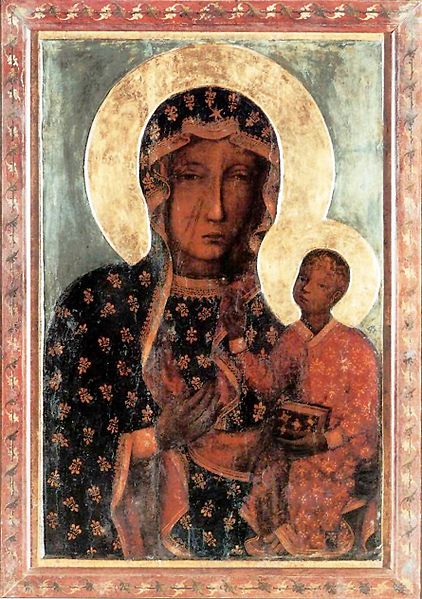
Above is the original "Black Madonna of Czestochowa" http://en.wikipedia.org/wiki/Black_Madonna
I will note that the term "Black" in the context of this picture has to do with the aging of the paint used and not with race.
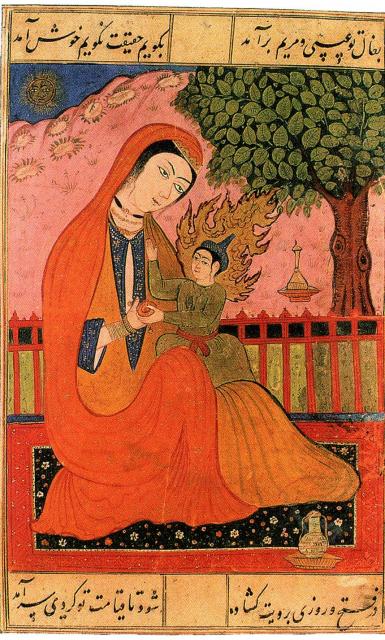
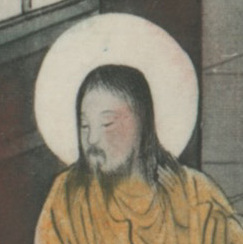
Above are Persian (left) and Chinese (right) versions of Mary and Jesus from Wikimedia Commons. Also see: http://en.wikipedia.org/wiki/Race_and_appearance_of_Jesus
St. Michael the Archangel is another story. Angels don't really have bodies or genders. They do have God given powers to appear however they with- the same goes for fallen angels. I do notice however that many images of St. Michael tend to give him red hair, a ruddy complexion, and a rather feminine appearance. I would say he has some features of a Celtic warrior in these images but then again no one is sure what the original Celts even looked like. I'm not saying the images are wrong since he was never incarnated as human anyway but I find it interesting that while he gets blatantly Northern European features the Devil who he crushes under his feet in some images frequently has "swarthy" more "Southern" features (kind of like me). For those who don't know St. Michael is the hero who cast the Serpent into the Eternal Fire after he disobeyed God. It reminds me of old shows on witches where a good witch is blonde and fair while the evil witch is brunette.

Abteikirche Michaelbeuern Altar, Michaelbeuern Abbey Church, Wikimedia Commons
In the image (icon) below St. Michael has his hair braided. I guess when you are a frequent flyer and have to fight off evil as he does it keeps his hair out of his eyes. At least the Devil in this image is not as "Mediterranean" as he is in other images:

Archangel Michael painted on the walls inside the church of Govora Monastery, Romania, Wikimedia Commons
The website: religioustolerance.org has an excellent article with images that speculate on what Christ really looked like. I'm not saying it even matters to me what his race was but I find it worth noting how people create God in their own image and likeness.
http://www.religioustolerance.org/chr_jcfa.htm
And this is from the New York Times: http://www.nytimes.com/2004/02/21/arts/what-did-jesus-really-look-like.html?pagewanted=all&src=pm
Don't forget the Shroud of Turin: http://www.shroud.com/
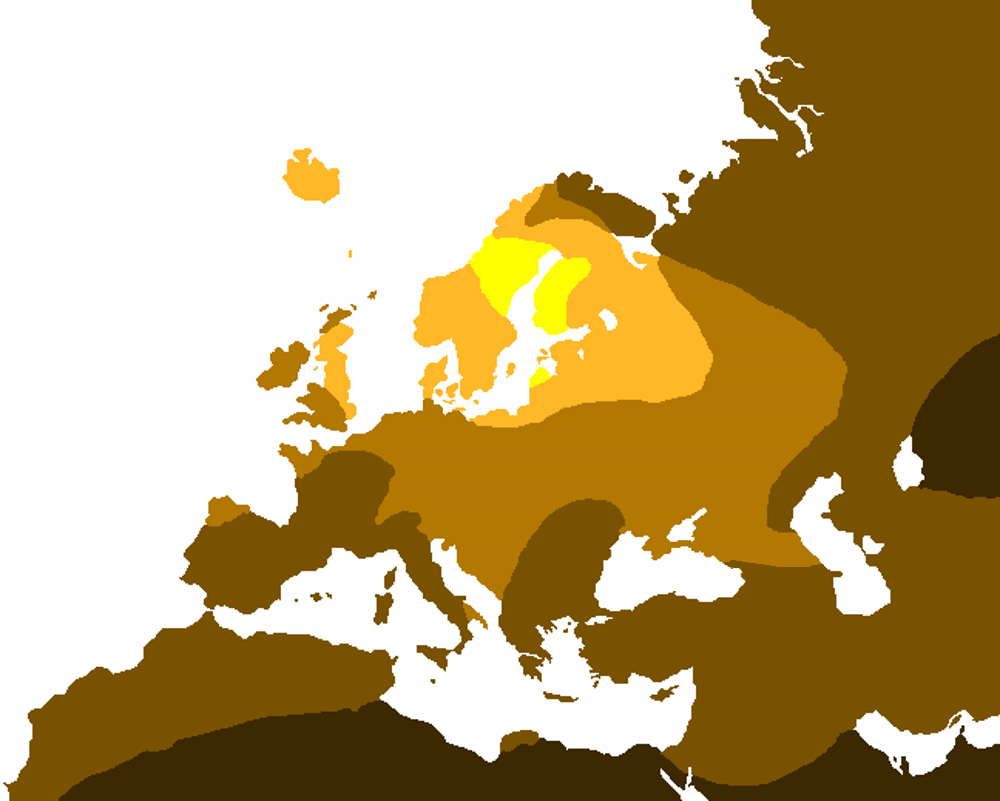
Above is a light hair coloration map from Wikipedia

Percentage of light eyes in Europe, by: Peter Frost, Université Laval (Canada), 2004
Going by this article I'd imagine that Jesus was not an NBA player either: http://en.wikipedia.org/wiki/Human_height
Merry Christmas... again...
Merry Christmas to those observing the Julian Calendar. I know even for western Christians, Christmas is not over until this weekend when the Feast of the Epiphany is observed. People nowadays tend to put their decorations up early and take them all down New Years Day. I guess they want to get everything down before it gets even colder, but it's nice to have something to look forward to in an otherwise boring month. I know there are also cultures even in the West where people exchange gifts on January 6 in honor of the Three Kings. No one is completely sure the exact date of Christ's birth anyway. Although I'm not Orthodox I like to leave my lights up until the second week of January and I never have them up before Thanksgiving. I switched all my Christmas lights to LED or "Energy Smart" lights that only use 3.2 Watts of electricity per strand so leaving them up 2 more weeks is only a matter of pennies. I also have solar string lights that I never take down.
Where I come from (the Pennsylvania coal region), today is known as "Russian Christmas" although it is also Christmas for any Eastern Christians who still follow their traditional calendar.

Trutovsky Konstantin Kolyadki v Malorossii (Late 19th Century)

Vladimir Putin 7 January 2002
http://www.kremlin.ru/events/photos/2002/01/148889.shtml
More on Christmas worldwide: http://en.wikipedia.org/wiki/Christmas_worldwide
Where I come from (the Pennsylvania coal region), today is known as "Russian Christmas" although it is also Christmas for any Eastern Christians who still follow their traditional calendar.

Trutovsky Konstantin Kolyadki v Malorossii (Late 19th Century)

Vladimir Putin 7 January 2002
http://www.kremlin.ru/events/photos/2002/01/148889.shtml
More on Christmas worldwide: http://en.wikipedia.org/wiki/Christmas_worldwide
Thursday, January 5, 2012
*Caveat Emptor! A word about Autistic celebrities:
I'm not one who tries to pin Autism on every famous person dead or alive but if I read of a confirmed case in a notable person I like to post it. I do this for the purpose of combating stigmas and to inspire those on the spectrum or with a loved one on the spectrum. I do have a caveat however: First if an article talks about somebody "overcoming" Autism, that all sounds nice as "overcome" is a popular word but it can easily be misunderstood. Autism is not a disease that you "cure", it is an organic neurological condition. One can overcome the side effects and still become- many Autistic people succeed "because" of their Autism rather than "in spite of". One doesn't overcome Autism the same way one overcomes Alcoholism, Addiction, or Obesity (or any other "disease"). It's also not like a phobia which people can "overcome". (Even phobias aren't 100% curable). If however an Autistic person is held back from expressing their talents due to perhaps a sensory sensitivity, they may learn to manage it in order to move forward. Another example would be if one learns more effective communication skills and is then able to pursue a career where they can use their talents even if the job involves people. In other words people overcome "hurdles", but not necessarily Autism as a whole.
Where I'm concerned with Autistic success stories is that people can abuse them as a way to judge Autistic people, especially those who are "lower functioning". If one is frustrated in dealing with an Autistic person I don't want these success stories used as a weapon saying "Look, Dan Aykroyd and that kid from American idol have the same thing. Why can't you be like that?", or "Dr. Temple Grandin is Autistic, she got a PhD so you have no excuse to not get through 8th grade English Class." I mean it's good to motivate people to work up to their potential and to avoid self-pity but sometimes these "tough love" lectures or so called "pep talks" can become self-serving and do more harm than good. Remember that Autism is a spectrum and on top of that it's not exactly a neatly organized, linear spectrum either.
Where I'm concerned with Autistic success stories is that people can abuse them as a way to judge Autistic people, especially those who are "lower functioning". If one is frustrated in dealing with an Autistic person I don't want these success stories used as a weapon saying "Look, Dan Aykroyd and that kid from American idol have the same thing. Why can't you be like that?", or "Dr. Temple Grandin is Autistic, she got a PhD so you have no excuse to not get through 8th grade English Class." I mean it's good to motivate people to work up to their potential and to avoid self-pity but sometimes these "tough love" lectures or so called "pep talks" can become self-serving and do more harm than good. Remember that Autism is a spectrum and on top of that it's not exactly a neatly organized, linear spectrum either.
Wednesday, January 4, 2012
More on Autism and Empathy:
I found these excellent sites today. If you click on them try to look through them and not just what's on the cover page. This all goes to show that Autistic people are not necessarily cold, even if they come off that way at times. Perhaps for me my Italian-American background balances off some of my Autistic traits. I can't speak for every person on the spectrum but for people who say they have "NO" empathy, it may be more the opposite: http://www.autismandempathy.com/?p=434
http://www.aspergersgirl.com/myths.html
http://www.aspergersgirl.com/myths.html
One of my favorite authors:
http://en.wikipedia.org/wiki/Eckhart_Tolle Author Eckhart Tolle is a hard person to classify. He is usually associated with the new age/new thought movements but I'm not so sure where he fits in. I discovered him a few years back when I was looking for a good audio book to keep me occupied on a long car trip. I found his book "A New Earth" At that point I was already starting to become jaded toward self-help gurus, motivational speakers, new age stuff, pop psychology... but at the same time a try not to label and prejudge. I was glad I got the audio book as it answered a lot of questions about human nature and helped me put things in perspective. The book didn't tell me how to get rich quick or how to be a successful business man and I wasn't looking for that anyway. It did help me to put a lot of things into perspective. Oddly many of Eckhart Tolle's fans also like "The Secret" though I also read that one when a friend lent it to me and though it was mostly nonsense and seemed almost the opposite of what Eckhart Tolle teaches. As far as this business that we create our world by our thoughts may have some truth to it but taken too far it denies the sovereignty of God and much of it is confirmation bias anyway. For those who don't know what I'm talking about then here: http://en.wikipedia.org/wiki/The_Secret_(book)
As a Catholic the first thing I have to consider is if a book is going to contradict my Faith. Eckhart Tolle does not fancy himself as a Catholic, a Buddhist, or any other religion. I will still read a book even if the author is not Catholic- I just take in the elements of truth and accept that there is virtually no author out there who I will agree with on everything. many of this guy's teachings overlap with Christianity and most other world religions. I know this author is very controversial among strict Catholics and other denominations, but people have to remember he never said he was Christian and you can't be a heretic to a religion you don't belong to. Whether or not this man is sincere or authentic I don't know. I never met him and I know little about his personal life other than what is on Wikipedia. Even if he wasn't sincere, original, or a hypocrite, it doesn't take away from any grains of truth in his teachings. Some people claim the book is just another version of the popular 1970's book "A Course in Miracles" which I know was very much criticized by some Catholic leaders. I can't say for sure because I never read "A Course in Miracles". I don't even recall Tolle claiming that what he teaches is new or original, he pretty much admits that he borrows from ancient teachings (of course all the "new age" gurus say that). Either way I can give him credit of being an excellent communicator and teacher and makes some of the gobbledygook easier for average Joe's like me to understand. Where a lot of "spiritual" teachers go wrong, and Tolle even addresses this, is that they preach the importance of humility and overcoming their egos that they become smug and egotistical themselves. This happens in conventional/traditional religions also. Many of them "dissolve their egos" all the way to the bank. While I believe it is important to keep the ego in check, we all have an ego, we are all weak human beings with the consequences of original sin in us. The enemy is not going to give up on us until we die and are with God. What is dangerous is to declare oneself so spiritually evolved and transformed that we no longer have an ego and no longer have any danger of regressing or falling into pride. It's just the opposite, to even say that is egotistical- it's a paradox. As for Eckhart Tolle he seems like a decent person, whether or not he's one of those "gurus" who own 10 sports cars and don't practice what they preach, I don't know. I only know what he writes in his books- at least the ones I have read.
What I like about his books and why I recommend them to people (even with a little reservation) is that he explains human nature and the many tricks of the ego. This whole "ego" business sounds like typical new age, hippy, pseudo-eastern thought but there is a truth to it that also holds true for Catholics and other Christians. Catholicism may not define the ego as broadly as the new age people do. Christianity is more individualistic and doesn't require that we give up our identities. Another thing with the new age is sometimes it overstates the ego, if something large is about to fall on us, cause serious harm and we move out of the way to avoid getting hurt, does that make us selfish, egotistical, or a narcissist? This sort of overstatement is part of why people end up rolling their eyes at what is otherwise good spiritual wisdom. Reading Tolle's work however seems to do a good job explaining why people are the way they are. It also explains how so many good people can fall into hypocrisy. Some well respected Catholic authors with similar messages would be St. Francis of Assisi, St. Teresa of Avila, Meister Eckhart, Thomas Merton (though he is still controversial among some Catholics), St. John of the Cross... but some of them are hard to understand. There are also many great writers in Eastern Christianity. Many times what gets labeled "eastern" is similar in teaching to what is labeled "western" but just a different way of looking at the same thing.
Personally I can read stuff written by just about anyone, even authors I vehemently disagree with and get at least something out of it. All it takes is to be able to read with discretion. The following are some articles viewing Eckhart Tolle from a Catholic perspective- though even these are only the opinions of individual Catholics: http://ncronline.org/node/638
http://catholicexchange.com/2009/01/08/115095/ (These first two links are more critical but somewhat balanced.)
In this third link below is the opinion of Eckhart Tolle by Fr. Richard Rohr (who I'll admit is also controversial among orthodox Catholics). I do think however this article is excellent and says a lot of what I'm trying to say much better than I can. I don't know much else about the priest who wrote this, but at least here he points out some important parallels: http://www.eckharttolle.com/article/Spirituality-And-The-Christian-Tradition Notice I got this link form Tolle's website so yes, I know it can easily be biased but it still makes some great points.
As a Catholic the first thing I have to consider is if a book is going to contradict my Faith. Eckhart Tolle does not fancy himself as a Catholic, a Buddhist, or any other religion. I will still read a book even if the author is not Catholic- I just take in the elements of truth and accept that there is virtually no author out there who I will agree with on everything. many of this guy's teachings overlap with Christianity and most other world religions. I know this author is very controversial among strict Catholics and other denominations, but people have to remember he never said he was Christian and you can't be a heretic to a religion you don't belong to. Whether or not this man is sincere or authentic I don't know. I never met him and I know little about his personal life other than what is on Wikipedia. Even if he wasn't sincere, original, or a hypocrite, it doesn't take away from any grains of truth in his teachings. Some people claim the book is just another version of the popular 1970's book "A Course in Miracles" which I know was very much criticized by some Catholic leaders. I can't say for sure because I never read "A Course in Miracles". I don't even recall Tolle claiming that what he teaches is new or original, he pretty much admits that he borrows from ancient teachings (of course all the "new age" gurus say that). Either way I can give him credit of being an excellent communicator and teacher and makes some of the gobbledygook easier for average Joe's like me to understand. Where a lot of "spiritual" teachers go wrong, and Tolle even addresses this, is that they preach the importance of humility and overcoming their egos that they become smug and egotistical themselves. This happens in conventional/traditional religions also. Many of them "dissolve their egos" all the way to the bank. While I believe it is important to keep the ego in check, we all have an ego, we are all weak human beings with the consequences of original sin in us. The enemy is not going to give up on us until we die and are with God. What is dangerous is to declare oneself so spiritually evolved and transformed that we no longer have an ego and no longer have any danger of regressing or falling into pride. It's just the opposite, to even say that is egotistical- it's a paradox. As for Eckhart Tolle he seems like a decent person, whether or not he's one of those "gurus" who own 10 sports cars and don't practice what they preach, I don't know. I only know what he writes in his books- at least the ones I have read.
What I like about his books and why I recommend them to people (even with a little reservation) is that he explains human nature and the many tricks of the ego. This whole "ego" business sounds like typical new age, hippy, pseudo-eastern thought but there is a truth to it that also holds true for Catholics and other Christians. Catholicism may not define the ego as broadly as the new age people do. Christianity is more individualistic and doesn't require that we give up our identities. Another thing with the new age is sometimes it overstates the ego, if something large is about to fall on us, cause serious harm and we move out of the way to avoid getting hurt, does that make us selfish, egotistical, or a narcissist? This sort of overstatement is part of why people end up rolling their eyes at what is otherwise good spiritual wisdom. Reading Tolle's work however seems to do a good job explaining why people are the way they are. It also explains how so many good people can fall into hypocrisy. Some well respected Catholic authors with similar messages would be St. Francis of Assisi, St. Teresa of Avila, Meister Eckhart, Thomas Merton (though he is still controversial among some Catholics), St. John of the Cross... but some of them are hard to understand. There are also many great writers in Eastern Christianity. Many times what gets labeled "eastern" is similar in teaching to what is labeled "western" but just a different way of looking at the same thing.
Personally I can read stuff written by just about anyone, even authors I vehemently disagree with and get at least something out of it. All it takes is to be able to read with discretion. The following are some articles viewing Eckhart Tolle from a Catholic perspective- though even these are only the opinions of individual Catholics: http://ncronline.org/node/638
http://catholicexchange.com/2009/01/08/115095/ (These first two links are more critical but somewhat balanced.)
In this third link below is the opinion of Eckhart Tolle by Fr. Richard Rohr (who I'll admit is also controversial among orthodox Catholics). I do think however this article is excellent and says a lot of what I'm trying to say much better than I can. I don't know much else about the priest who wrote this, but at least here he points out some important parallels: http://www.eckharttolle.com/article/Spirituality-And-The-Christian-Tradition Notice I got this link form Tolle's website so yes, I know it can easily be biased but it still makes some great points.
Iowa what?
OK, so Mitt Romney wins the Iowa Caucuses. None of the candidates thrill me but I guess this guy isn't too bad. I'm not so sure I'd call him a centrist but I think he's the type who will (hopefully) inch toward the center after he gets the nomination if he indeed gets it. Whatever the future may bring, this guy doesn't seem to be losing any sleep over it:

Subscribe to:
Posts (Atom)
